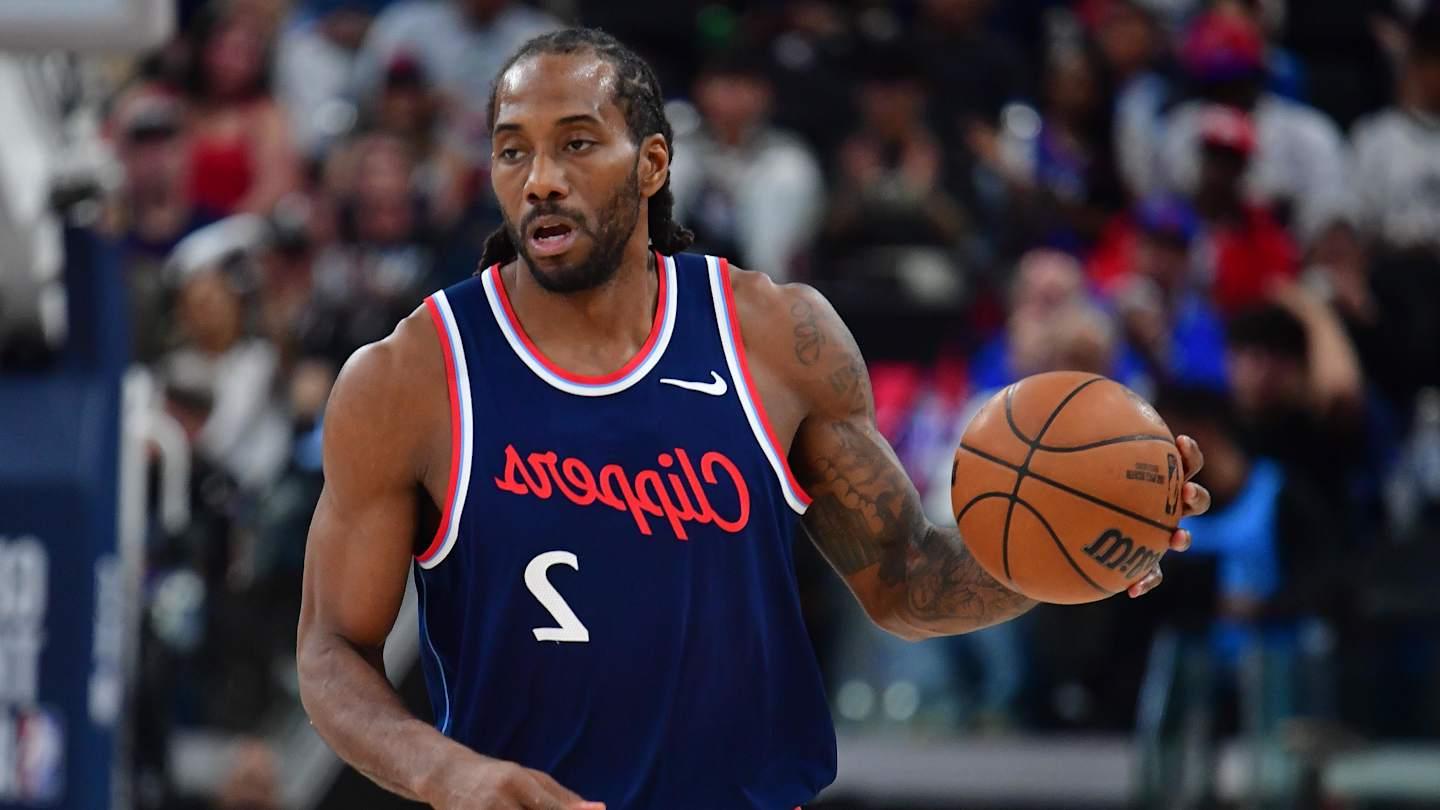The NBA playoffs are known for their intense competition.
TubiTV Just Hit 200 Million Users – Here’s Why
10 Perfect-Score Shows Buried on Prime Video Right Now
The playoff atmosphere can unveil unexpected aspects of teams, players, and coaches, revealing both strengths and weaknesses. Such pressure is often the catalyst for impressive performances, as exemplified by Jalen Brunson’s rise when he stepped up as the primary option for the Dallas Mavericks during Luka Doncic’s injury. His stellar performance not only made him a sought-after player during the free agency but also catapulted him into MVP discussions as a leader for the New York Knicks.
However, not all revelations are positive. A poor playoff performance can be detrimental to an organization, as seen with the Utah Jazz. Once a consistent contender for the top seed in the West, a disappointing 2022 postseason led to a major roster overhaul, from which the team is still recovering.
The $3.99 Streaming Service With 500+ Oscar Winners Nobody Knows About
Cancel These 3 Subscriptions Before November 1st – Here’s Why
The postseason effectively teaches teams crucial lessons about their current strategies and rosters. The real challenge lies in whether these lessons are heeded. The playoffs lay bare both the glaring issues and the unexpected strengths of teams.
For teams that have been knocked out of this season’s playoffs, now is the time to reflect on these lessons and plan for the future. Here are some key takeaways for each team that didn’t make it past this postseason.
Los Angeles Lakers
Lesson learned: Size is still important
Despite the excitement surrounding the acquisition of Luka Doncic, the Lakers’ early playoff exit was somewhat anticipated due to the imbalance it caused in the team’s roster. This move resulted in a glaring deficiency in size across the team. After trading away Anthony Davis and failing to secure Mark Williams, the team was left without any impactful 7-footers, making them vulnerable in the paint. This weakness was exploited by the Minnesota Timberwolves, who dominated the boards and eliminated the Lakers, thanks in part to Rudy Gobert’s commanding performance in Game 5. The lack of size not only cost them in terms of rebounding but also in allowing too many second-chance points, which ultimately led to their downfall. This playoff exit serves as a stark reminder that having a talented roster is not enough; physical presence is crucial in the playoffs.
The Lakers’ failure to maintain an effective frontcourt has shown that size is not just an old-school basketball ideal but a necessity for contending in today’s game. Despite the brilliance of Doncic and LeBron James, their efforts were not enough to compensate for the team’s significant lack in physical size and presence inside.
Los Angeles Clippers
Lesson learned: Kawhi Leonard’s flashes are still just flashes
Kawhi Leonard’s spectacular 39-point game against the Denver Nuggets reminded fans of his peak capabilities. However, the rest of the series painted a different picture, with Leonard’s performance fluctuating and ultimately not enough to prevent the Clippers’ elimination. This inconsistency suggests that, although Leonard can still produce moments of brilliance, his ability to consistently perform at the highest level might be behind him. The Clippers need to face the reality that Leonard, while still a valuable player, may no longer be the franchise cornerstone capable of leading them to a championship.
This realization is crucial for the Clippers as they plan their future strategies. Relying on Leonard to carry the team through the playoffs is no longer viable. The team needs to either bolster their roster to support him or reconsider their approach to building a contender. Leonard’s sporadic brilliance, while still impressive, is not the reliable force it once was.
The Clippers’ postseason experience has highlighted the need for a more consistent secondary option to take the pressure off Leonard. This adjustment is essential for the Clippers to remain competitive in the highly contested Western Conference.
Detroit Pistons
Lesson learned: The young core can handle postseason basketball
The Pistons have shown remarkable improvement this season, tripling their win total and securing the No. 6 seed in the East. Facing a seasoned New York Knicks team in the first round, there were low expectations for this young Detroit team. However, they defied these expectations by demonstrating their ability to compete in the high-pressure environment of the playoffs. Cade Cunningham, Ausar Thompson, and Jalen Duren all stepped up, showing that they could handle the intensity and challenges of postseason play.
This performance is a promising sign for the Pistons’ future. While they are not yet contenders, the experience gained and the poise shown by their young players suggest that they have the potential to grow into a more formidable team. The Pistons can build on this foundation, confident in their young core’s ability to perform under playoff pressure.
Milwaukee Bucks
Lesson learned: Giannis Antetokounmpo can’t do it alone
The Bucks faced a tough playoff series against the Indiana Pacers, which was further complicated by Damian Lillard’s injury. With Lillard sidelined, the burden fell heavily on Giannis Antetokounmpo, who delivered an outstanding performance but couldn’t carry the team alone. This series has made it clear that, despite Antetokounmpo’s exceptional abilities, he needs a stronger supporting cast to truly compete for a championship.
Antetokounmpo’s solo efforts were not enough to overcome the Pacers, and the Bucks must reevaluate their roster to provide him with the help he needs. This offseason will be crucial for Milwaukee as they decide how to best build around their superstar and ensure they do not waste his prime years.
The Bucks’ early exit is a stark reminder of the importance of depth and balance in a team’s roster, especially in the playoffs where the intensity and stakes are higher. Adjustments are necessary if Milwaukee hopes to make a deeper run in future postseasons.
Memphis Grizzlies
Lesson learned: Questions persist about Ja Morant’s ability to hold up
The Grizzlies faced an uphill battle from the start, matching up against the formidable 68-win Oklahoma City Thunder in the first round. With multiple key players missing and organizational changes just before the playoffs, it was a challenging series for Memphis. However, concerns were particularly highlighted regarding Ja Morant’s durability. Morant’s recurring injuries have raised doubts about his ability to sustain his performance throughout the rigors of postseason play.
Despite his talent, Morant’s proneness to injury has become a concerning pattern, especially during the playoffs when physicality intensifies. This issue was evident as he missed significant time in this series, which ultimately contributed to the Grizzlies’ swift exit. The team must consider this factor as they plan for the future, as relying heavily on Morant may be risky given his health record.
This postseason has underscored the need for Memphis to either bolster their roster to support Morant or to develop strategies that can mitigate the impact of his potential absences. The Grizzlies’ reliance on Morant’s presence and performance is a gamble that has not paid off in terms of playoff success.
Moving forward, the Grizzlies will need to address this vulnerability to ensure that they can compete consistently and effectively in future postseasons, regardless of Morant’s health status.
Houston Rockets
Lesson learned: The next step is finding an offensive creator
The Rockets showcased a solid defensive performance in their series against the Warriors, particularly in their ability to limit Stephen Curry’s impact after a dominant Game 1. This defensive effort highlighted the potential within the young team’s core. However, their offensive struggles were apparent, as they failed to consistently produce points. The lack of a reliable offensive creator was evident and is something the Rockets need to address moving forward.
While players like Fred VanVleet and Dillon Brooks brought occasional offensive sparks, the team lacked a consistent threat who could take charge and make plays when needed. This shortfall was particularly noticeable in critical moments of the series, where the Rockets struggled to keep up with the Warriors’ scoring.
For Houston to progress and build on their defensive foundations, they must find a player who can lead their offense. This addition would not only complement their existing strengths but also elevate their overall team performance.
The upcoming offseason will be crucial for the Rockets as they seek to address this critical need. Identifying and acquiring an offensive leader will be essential for their growth and success in future campaigns.
Miami Heat
Lesson learned: They need more of everything
The Heat’s playoff run was unexpectedly brief, with the team being swiftly eliminated by the Cleveland Cavaliers. This series exposed significant weaknesses in Miami’s roster, which were exploited by the Cavaliers. The Heat’s performance highlighted the need for improvements across the board.
From the lack of scoring options to defensive vulnerabilities, the Heat struggled in multiple areas. This comprehensive defeat indicates that the team needs to reevaluate their roster and strategy comprehensively. Simply adding one or two players may not be enough; a
Similar posts:
- NBA Power Rankings: Thunder Dominate as Top Playoff Favorites!
- NBA Playoffs: Key Takeaways from Shocking Second-Round Exits!
- NBA Playoffs Shockers: Top 4 Underdogs Poised to Defy Odds!
- Jokic Shatters NBA Records in Thrilling Nuggets-Clippers Game 4 Showdown!
- NBA Exec Thinks Ja Morant Trade Was Coming Before Jenkins’ Firing!

Mike Johnson is a passionate news writer with a keen interest in current events. With over a decade of experience in journalism, he has a talent for uncovering the stories that matter most. Mike’s insightful articles and in-depth analyses have made him a trusted voice in the industry. He thrives on staying ahead of the news curve, providing readers with timely and relevant information. Whether it’s breaking news, politics, or social issues, Mike’s dedication to the craft ensures that his readers are always well-informed.

